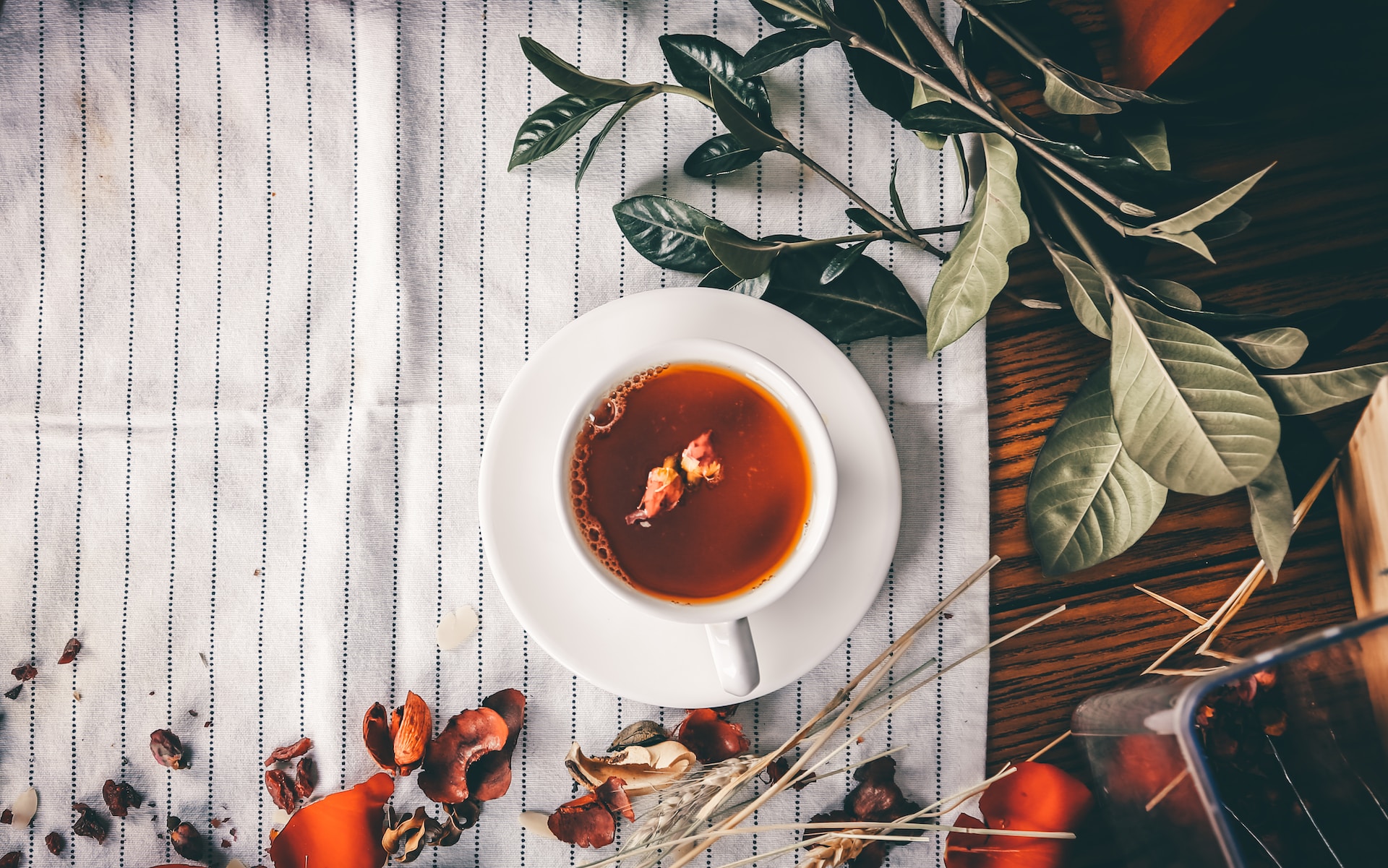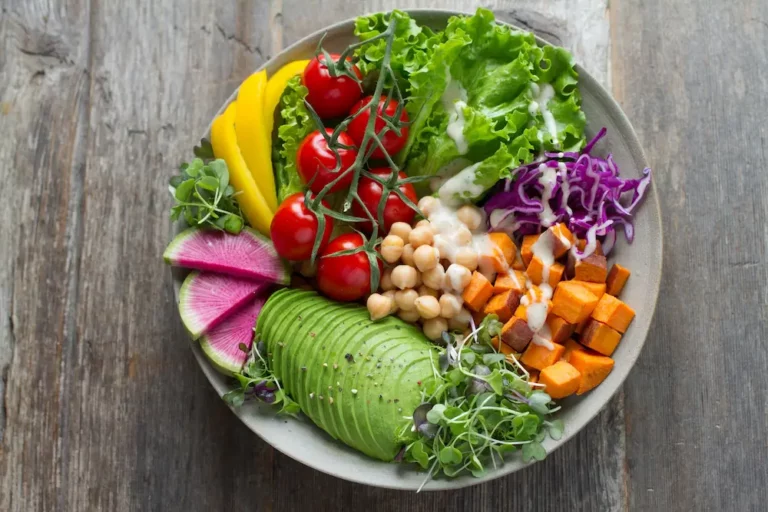How to Make Moringa Tea: A Step-by-Step Guide
Are you looking for a simple and healthy tea recipe that you can enjoy anytime? Look no further than moringa tea! Moringa tea is made by steeping dried moringa leaves in hot water for several minutes, resulting in a refreshing and nutritious beverage.
Moringa, also known as the “miracle tree,” is a plant native to India that has been used for centuries in traditional medicine. The leaves of the moringa tree are packed with vitamins, minerals, and antioxidants, making them a great addition to your diet. Drinking moringa tea is a convenient and tasty way to reap the benefits of this superfood.
Making moringa tea is easy and can be done in just a few simple steps. Whether you use fresh or dried moringa leaves, you can customize your tea to your liking with added sweeteners or flavors. In this article, we will guide you through the process of making moringa tea so that you can enjoy this healthy and delicious beverage at home.
Understanding Moringa
What is Moringa
Moringa is a plant that has been used for centuries for its medicinal and nutritional properties. It is also known as Moringa oleifera, and it belongs to the family Moringaceae. Moringa is a tropical and subtropical plant that is native to India, Pakistan, and Africa. The leaves, bark, flowers, fruit, and seeds of the Moringa tree are all used for various purposes.
The Moringa Tree
The Moringa tree is a fast-growing tree that can grow up to 10 meters tall. It has small, oval-shaped leaves that are bright green, and it is known for its bitter taste. The leaves are packed with nutrients and are a good source of vitamins A, C, and E, as well as calcium, potassium, and protein. The Moringa tree is also known as the drumstick tree, horseradish tree, or ben oil tree.
Moringa in Different Cultures
Moringa has been used in traditional medicine in many cultures. In India, Moringa leaves and pods are used to make a variety of dishes. In Africa, Moringa leaves are used to treat a variety of ailments, including diabetes, high blood pressure, and anemia. In Pakistan, Moringa is used to treat skin infections, digestive problems, and respiratory issues.
Moringa is also gaining popularity in the Western world as a superfood due to its high nutrient content. It is available in various forms, including capsules, powders, and teas. Moringa tea is a refreshing and healthy beverage that can be consumed daily to increase wellness and vitality.
Overall, Moringa is a versatile plant that has many health benefits and uses. Incorporating it into your diet can help improve your overall health and well-being.
Health Benefits of Moringa
Moringa is a plant that has been used for centuries in traditional medicine due to its numerous health benefits. Here are some of the benefits of consuming moringa:
Nutritional Value
Moringa is a rich source of vitamins, minerals, and amino acids. It contains high levels of vitamin A, vitamin C, calcium, and protein. In fact, moringa contains more vitamin C than oranges, more calcium than milk, and more protein than eggs.
Role in Disease Prevention
Moringa has been shown to have antioxidant and anti-inflammatory properties, which can help prevent chronic diseases such as cancer, diabetes, and heart disease. It contains quercetin and beta-carotene, which are both powerful antioxidants that can protect the body from free radicals.
Moringa and Diabetes
Moringa has been shown to help lower blood sugar levels in people with diabetes. It contains compounds that can improve insulin sensitivity and help regulate blood glucose levels.
Moringa and Weight Loss
Moringa can aid in weight loss due to its low-calorie and high-nutrient content. It can also help reduce inflammation and improve digestion, which can lead to a healthier gut and weight loss. People frequently drink it to get a flat tummy.
Moringa for Skin Care
Moringa is rich in antioxidants, which can help protect the skin from free radicals and reduce the appearance of fine lines and wrinkles. It also contains vitamin E, which can help improve skin elasticity and hydration.
Overall, consuming moringa can have numerous health benefits. However, it is important to note that consuming too much moringa can have side effects, such as diarrhea and toxicity due to high levels of arsenic. As with any supplement or herb, it is important to consult with a healthcare professional before consuming moringa.
Preparing Moringa Tea
If you’re looking for a healthy and tasty tea, moringa tea is a great option. You can easily make a moringa tea from the leaves of its tree, also known as Moringa Oleifera. It’s packed with nutrients and antioxidants that can benefit your health. Here are three ways you can prepare moringa tea:
Using Moringa Leaves
To prepare moringa tea using leaves, you’ll need to dry the leaves first. Once the leaves are dry, you can either use them as they are or grind them into a fine powder. Here’s how you can prepare moringa tea using leaves:
- Boil water in a pot.
- Add the dried moringa leaves to the pot.
- Let the leaves steep in the water for 5-10 minutes.
- Strain the tea into a cup.
- Add honey, sugar, lemon, or any other flavorings you like.
Using Moringa Powder
Moringa powder is a convenient way to make moringa tea. You can learn how to make moringa powder by yourself or buy it at health food stores. Here’s how you can prepare moringa powder for tea:
- Boil water in a pot.
- Add a teaspoon of moringa powder to the pot.
- Let the powder steep in the water for 5-10 minutes.
- Strain the tea into a cup.
- Add honey, sugar, lemon, or any other flavorings you like.
Flavoring Your Moringa Tea
Moringa tea has a slightly bitter taste, so many people like to add flavorings to it. Here are some ideas for flavoring your moringa tea:
- Honey: adds sweetness and can also soothe a sore throat.
- Sugar: adds sweetness and can help balance the bitterness of the tea.
- Lemon: adds a tangy flavor and can also boost the tea’s antioxidant content.
- Cinnamon: adds a warm, spicy flavor and can also help regulate blood sugar.
- Ginger: adds a spicy, slightly sweet flavor and can also help with digestion.
- Turmeric: adds a warm, earthy flavor and can also help reduce inflammation.
Overall, moringa tea is a great way to enjoy the health benefits of moringa. Whether you prefer to use leaves or powder, or add flavorings to your tea, there are many ways to enjoy this nutritious beverage.
Other Uses of Moringa
Moringa is a versatile plant that can be used in various ways. Apart from making tea, you can use moringa in smoothies, soups, and as a vegetable. Here are some ways you can incorporate moringa into your meals:
Moringa in Smoothies
Adding moringa to your smoothies is an excellent way to boost your nutrient intake. You can use either fresh or powdered moringa leaves. Moringa is rich in vitamins, minerals, and antioxidants, making it a great addition to your smoothies. Here is a simple recipe to get you started:
- 1 banana
- 1 cup of spinach
- 1 cup of almond milk
- 1 tablespoon of moringa powder
Blend all the ingredients until smooth, and your moringa smoothie is ready to enjoy.
Moringa in Soups
Moringa leaves can also be added to soups for an extra nutritional boost. You can use either fresh or dried moringa leaves. Moringa has a mild flavor, so it won’t overpower the taste of your soup. Here is a simple recipe to try:
- 1 onion, chopped
- 2 garlic cloves, minced
- 2 cups of chopped vegetables (carrots, celery, etc.)
- 4 cups of vegetable broth
- 1 cup of chopped moringa leaves
- Salt and pepper to taste
Saute the onion and garlic in a pot until soft. Add the chopped vegetables and cook for a few minutes. Add the vegetable broth and bring to a boil. Reduce the heat and simmer for 10 minutes. Add the moringa leaves and cook for an additional 5 minutes. Season with salt and pepper to taste, and your moringa soup is ready to serve.
Moringa as a Vegetable
Moringa leaves can also be cooked and eaten as a vegetable. You can use fresh or dried moringa leaves. Moringa leaves are rich in vitamins and minerals, making them a nutritious addition to your meals. Here is a simple recipe to try:
- 2 cups of chopped moringa leaves
- 1 onion, chopped
- 2 garlic cloves, minced
- 1 tablespoon of olive oil
- Salt and pepper to taste
Saute the onion and garlic in a pan until soft. Add the chopped moringa leaves and cook for a few minutes until tender. Season with salt and pepper to taste, and your moringa vegetable is ready to serve.
In conclusion, moringa is a versatile plant that can be used in various ways. Adding moringa to your meals is an excellent way to boost your nutrient intake. Whether you use moringa in smoothies, soups, or as a vegetable, you’re sure to enjoy its many health benefits.
Potential Risks and Side Effects
While moringa tea is generally safe for most people to consume, there are some potential risks and side effects that you should be aware of. In this section, we will cover some of the possible side effects of drinking moringa tea and discuss its safety during pregnancy.
Possible Side Effects
Some people may experience side effects after drinking moringa tea. These side effects may include abdominal pain, vomiting, and diarrhea. In rare cases, moringa tea may cause toxicity if consumed in large amounts. However, most people would need to consume a significant amount of moringa tea to experience toxicity.
Moringa leaves can also contain trace amounts of arsenic, which can be toxic in high doses. However, the levels of arsenic in moringa leaves are generally very low and are not a cause for concern for most people.
Pregnancy and Moringa
If you are pregnant or breastfeeding, it is important to talk to your doctor before drinking moringa tea. While moringa is generally safe for most people, there is not enough research to determine its safety during pregnancy.
Some studies have suggested that moringa may have a potential role in preventing miscarriage, but more research is needed to confirm these findings. If you are pregnant or breastfeeding, it is best to err on the side of caution and avoid drinking moringa tea until more research is available.
In summary, while moringa tea is generally safe for most people to consume, it is important to be aware of the potential risks and side effects. If you experience any adverse effects after drinking moringa tea, stop consuming it and talk to your doctor. If you are pregnant or breastfeeding, it is best to talk to your doctor before consuming moringa tea.
Conclusion
Congratulations! You have learned how to make delicious and nutritious moringa tea. By following the simple steps outlined in this article, you can enjoy the many benefits of this amazing superfood.
Moringa tea is a great way to add antioxidants and other essential nutrients to your diet. It is easy to make and can be enjoyed hot or cold. You can also add other herbs and spices to create your own unique blend.
Remember to use fresh, high-quality moringa leaves or powder for the best results. Be sure to store your moringa tea in an airtight container to preserve its flavor and nutrients.
Incorporating moringa into your daily routine can have numerous health benefits, including boosting your immune system, improving digestion, and reducing inflammation. Additionally, moringa is a sustainable crop that can be grown in many parts of the world.
So why not give moringa tea a try? It’s a simple and delicious way to improve your health and well-being.
Frequently Asked Questions
How can I make moringa tea taste better?
If you find the taste of moringa tea to be too bitter or earthy, you can add natural sweeteners like honey or stevia to enhance its flavor. You can also add lemon or ginger to give it a zesty kick.
What are the benefits of drinking moringa tea?
Moringa tea is known for its high nutritional value and health benefits. It is rich in antioxidants, vitamins, and minerals, which can help boost your immune system, lower blood sugar levels, improve digestion, and promote healthy skin and hair.
Is it safe to drink moringa tea every day?
Moringa tea is generally safe to consume every day in moderation. However, if you have any underlying health conditions or are taking medication, it’s best to consult with your healthcare provider before adding moringa tea to your daily routine.
How do I prepare moringa leaves for drinking?
To prepare moringa leaves for drinking, you can either use fresh leaves or dried leaves. If using fresh leaves, wash them thoroughly and chop them into small pieces. If using dried leaves, grind them into a fine powder. Then, add the leaves or powder to a cup of hot water and let it steep for 5-10 minutes. Strain the tea and enjoy!
What are the possible side effects of drinking moringa tea?
While moringa tea is generally safe to drink, some people may experience mild side effects such as nausea, diarrhea, or stomach cramps. If you experience any adverse effects, stop drinking moringa tea and consult with your healthcare provider.
What is the best way to drink moringa tea?
The best way to drink moringa tea is to enjoy it hot or cold, depending on your preference. You can also add natural sweeteners or flavors to enhance its taste. It’s important to note that moringa tea should not be boiled or heated for too long, as this can destroy some of its beneficial nutrients.







